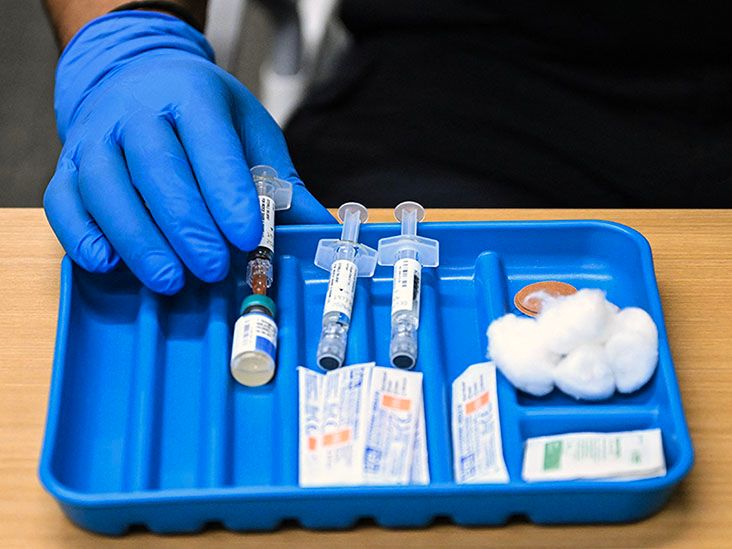Ozempic is a glucagon-like peptide-1 (GLP-1) medication that can help you manage type 2 diabetes and lose weight. But Ozempic can be hard to get hold of. Learn where to get the best Ozempic alternatives, such as Mounjaro and Saxenda.
- For Wegovy: Ro Body | Skip to review
- For Saxenda: K Health | Skip to review
- For Rybelsus: PlushCare | Skip to review
- For Mounjaro: Sesame Care |Skip to review
- For Trulicity: K Health | Skip to review
What to know about Ozempic alternatives
Ozempic is sometimes in shortage, according to the Food and Drug Administration (FDA). This means people may find it difficult to purchase this medication due to supply issues. However, there are alternative options for both type 2 diabetes and weight management. Read on to learn more.
Ozempic alternatives for diabetes
Ozempic has FDA approval for the management of type 2 diabetes. Other FDA-approved options include:
- Mounjaro (tirzepatide): This injectable medication activates glucose-dependent insulinotropic polypeptide and GLP-1 pathways to help regulate blood sugar. Similar to Ozempic, it also slows down food digestion.
- Trulicity (dulaglutide): This is an injectable medication for adults and children over 10 years old. It improves blood sugar and helps reduce the risk of major cardiovascular events. It also slows food digestion.
- Rybelsus (semaglutide): This medication contains the same active ingredient as Ozempic and works the same way. However, it comes in tablet form.
Ozempic alternatives for weight loss
Ozempic does not have FDA approval for weight loss. Alternatives to Ozempic for weight loss that have FDA approval include:
- Wegovy (semaglutide): This drug has the same active ingredient as Ozempic and works in the same way. It is an injectable medication with FDA approval for weight management.
- Saxenda (liraglutide): This injectable medication is suitable for adults and children 12 to 17 years old with overweight or obesity and who also have a weight-related condition.
Read on to learn where to get these Ozempic alternatives.
Ozempic (semaglutide) is a once-weekly semaglutide injection that helps manage blood sugar levels in people with type 2 diabetes. It is a GLP-1 medication that increases incretin hormone levels. The enteroendocrine cells release these stomach hormones into the blood within minutes of eating, helping the body produce insulin.
Ozempic
It can also help you lose weight when used alongside a balanced diet and lifestyle changes. A 2021 study found that people with obesity lost 14.9% of their body weight within 68 weeks of using this drug.
A 2022 meta-analysis also reported that Ozempic can result in weight loss reductions of up to 20%. However, it is not FDA approved as a weight loss drug.
There are several FDA-approved GLP-1 medications for weight loss that healthcare professionals may prescribe instead of Ozempic.
Wegovy (semaglutide)
Saxenda (liraglutide)
There are three main GLP-1 alternatives of Ozempic for type 2 diabetes. Healthcare professionals may prescribe these medications if the drug does not manage your blood sugar well or if you are experiencing adverse side effects.
Rybelsus (semaglutide)
Mounjaro (tirzepatide)
Trulicity (dulaglutide)
In the following table, we compare Ozempic with its alternatives for diabetes and weight loss.
| Eligibility criteria | Form | Dose frequency | Out-of-pocket cost | |
|---|---|---|---|---|
| Ozempic | have type 2 diabetes | injection | once per week | around $943 |
| Rybelsus | have type 2 diabetes | tablet | once daily | around $906 |
| Mounjaro | have type 2 diabetes | injection | once per week | around $999 |
| Trulicity | have type 2 diabetes | injection | once per week | around $886.56 |
| Wegovy | must have overweight or obesity with one weight-related medical condition | injection | once per week | around $1,300 |
| Saxenda | must have overweight or obesity with one weight-related medical condition | injection | once daily | around $1,300 |
Not everyone is eligible for Ozempic, which can also be difficult to obtain. Supplements are available that claim to be over-the-counter (OTC) alternatives to Ozempic, but there is minimal scientific evidence to prove they work effectively.
The
Some undisclosed ingredients that may appear in OTC weight loss supplements, such as sibutramine and fenproporex, have severe and potentially fatal side effects. Therefore, companies are not allowed to sell products containing these drugs.
You must always consult a doctor or healthcare professional before taking any OTC weight loss aids. You also need to watch for warning signs that a product is making fraudulent health claims. Some signs include:
- promises of a fast and easy fix
- claims such as “scientific breakthroughs” or “ancient remedy”
- phrases such as “thermogenesis” and “hunger stimulation point”
- claims that a product is “natural”
- unsubstantiated testimonials of fast and easy results by customers and doctors
- no-risk, money-back guarantees
There are several substances that scientists are investigating that may have similar effects to Ozempic.
For example, berberine, a component of the traditional Chinese herb Rhizoma coptidis, may help reduce body fat. However, these substances require more rigorous study.
It is important not to take so-called natural alternatives to Ozempic without the advice of a healthcare professional.
There are several GLP-1 medications available. People can talk with a healthcare professional to find the type that best suits their needs.
Ozempic alternatives for type 2 diabetes management include Mounjaro and Rybelsus. For weight loss, people can consider Wegovy and Saxenda. Only change your diabetes or weight loss medication after discussing it with a doctor.
Trulicity can cause weight loss, but the FDA has not approved it for this use.
No, Trulicity (dulaglutide) is not the same drug as Ozempic (semaglutide).
They are both GLP-1 medications that work similarly and have FDA approval to treat high blood sugar levels in people with type 2 diabetes.
However, a 2018 study found that low doses of semaglutide may be more effective than low doses of dulaglutide in improving blood sugar levels.
Rybelsus can cause weight loss, but it is not a weight loss drug. It is FDA approved for managing type 2 diabetes.
Ozempic (semaglutide) is a GLP-1 medication that can help improve blood sugar levels and manage weight. The FDA has approved several GLP-1 alternatives for both concerns.
While OTC alternatives exist, it is important not to take them without discussing them with a healthcare professional. These alternatives may include illegal or harmful ingredients or undisclosed prescription medications.



